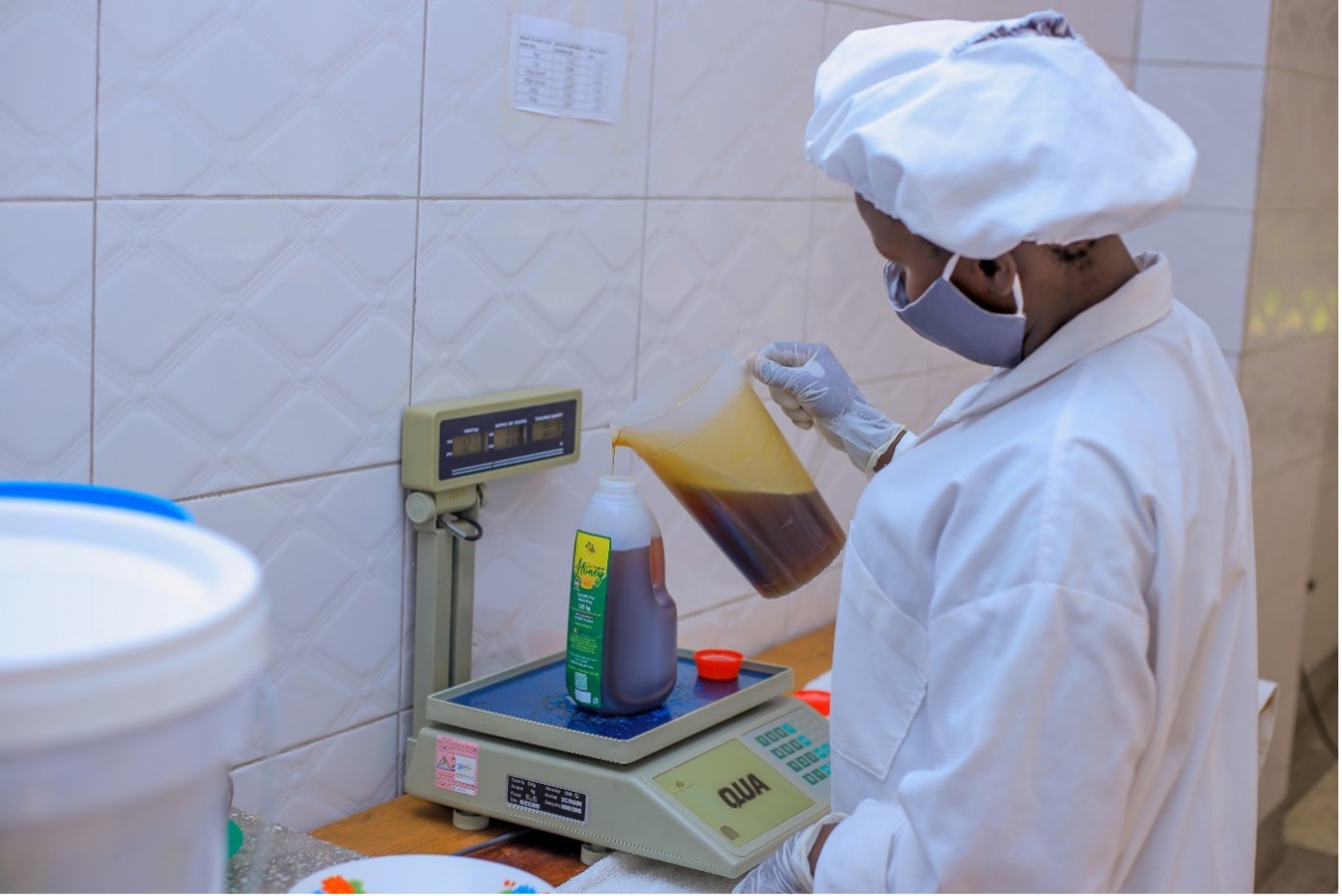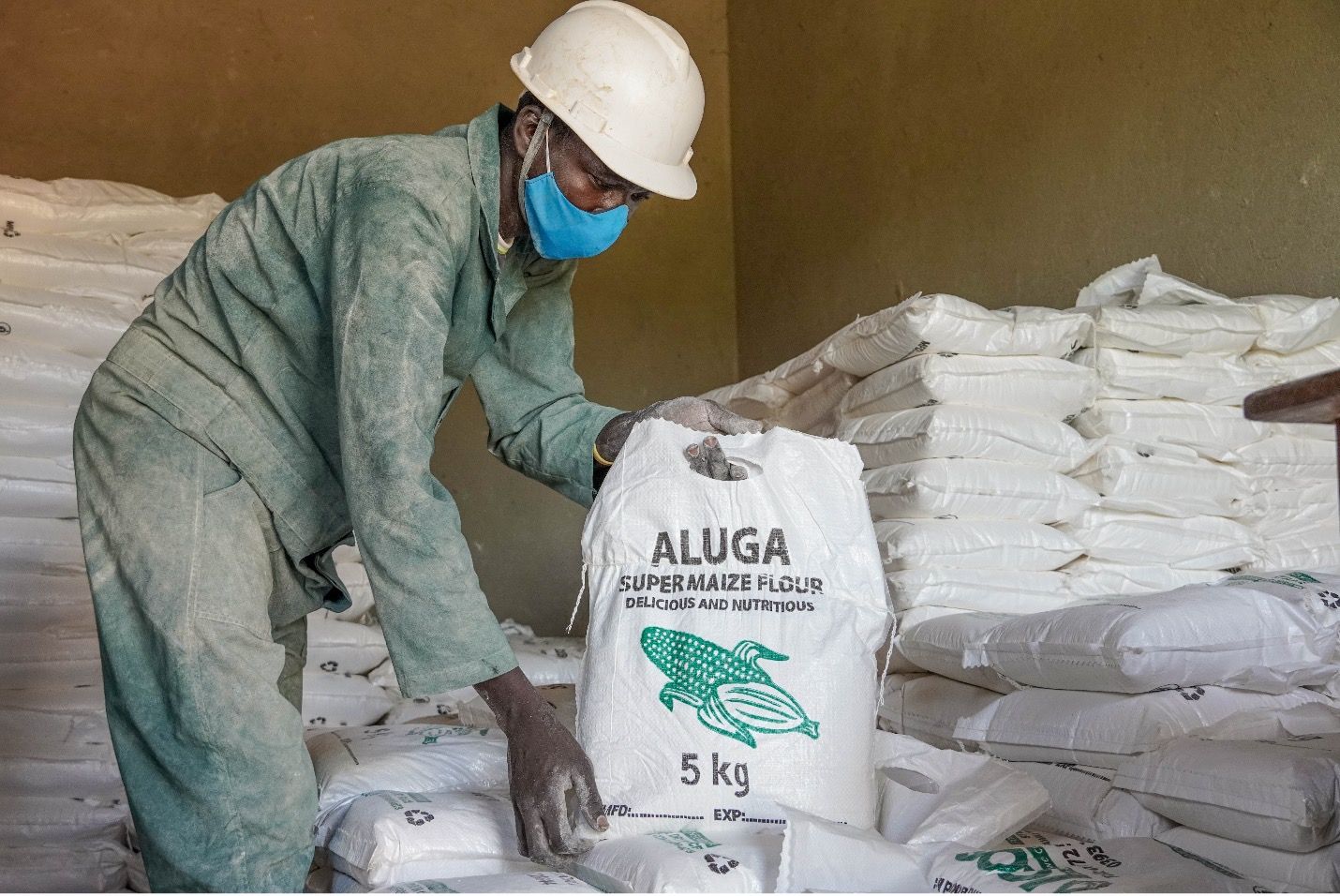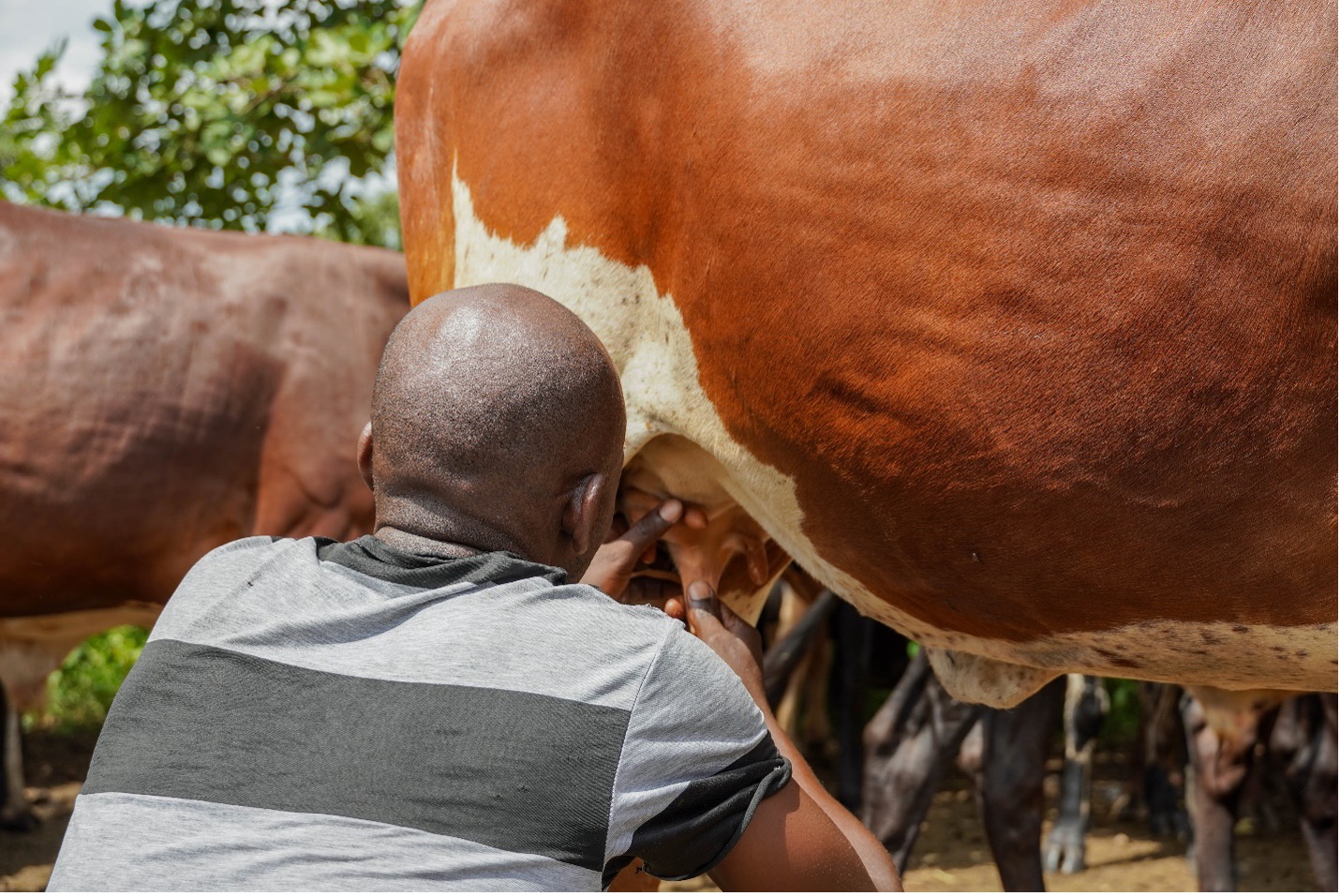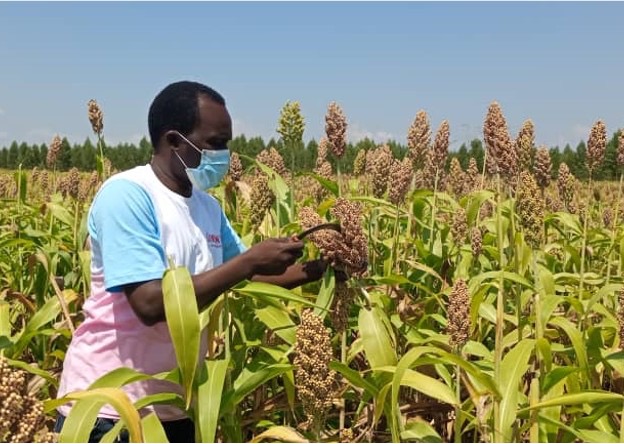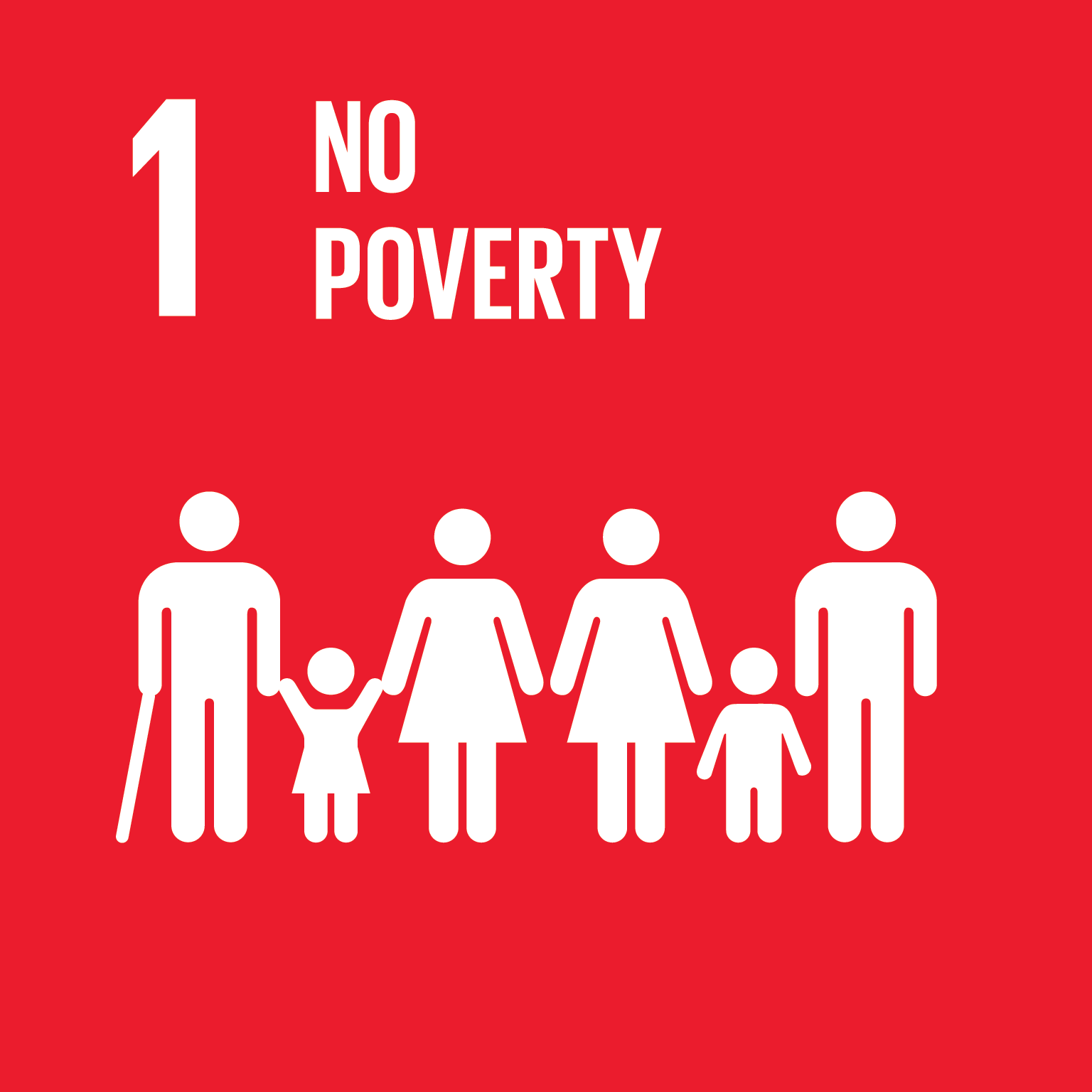 Support to Agricultural Revitalization and Transformation Facility (START)
Enabling SMEs to access affordable medium-term funding for added value and agro-processing
Support to Agricultural Revitalization and Transformation Facility (START)
Enabling SMEs to access affordable medium-term funding for added value and agro-processing

Challenges
In Uganda, the SME sector makes up over 70 per cent of the economy and contributes approximately 20 percent of gross domestic product (GDP), but it continues to struggle to access affordable financing. The growth of the agricultural sector in the country has been slow due to decades of war and instability in the region, resulting in low added value and generally low business capacity. While there are financing options available, the high interest rates of over 20 percent per annum, short repayment periods and high collateral requirements make it hard for many SMEs to afford taking out a loan. The informal nature of SMEs and many capacity gaps require business development services (BDS) to be addressed to become bankable.
Towards a Solution
To address the above challenges, the United Nations Capital Development Fund (UNCDF) and its partners launched the Support to Agricultural Revitalization and Transformation (START) Facility to provide affordable medium-term concessional financing to agribusiness SME projects in Northern Uganda.
The START facility was designed to help implement the European Union (EU) funded programme, Development Initiative for Northern Uganda (DINU) in food security, nutrition and livelihoods by providing affordable financing to agro-processing businesses in northern Uganda to improve access to locally diversified foods. START is a blended finance facility providing a customized mix of business development services (BDS), project development and structuring services and financial products managed by Private Sector Foundation Uganda (PSFU), UNCDF and Uganda Development Bank (UDB), respectively. The project mainly addresses SDG 1 poverty reduction and SDG 2 zero hunger, as well as Priority 2 of IPoA - Agriculture, food security and rural development.
START provides medium-term concessional financing at 10 percent per annum, with a repayment period of five years, including a grace period of up-to 12 months. The fund targets projects with a financing need of US$ 12,000 to US$ 120,000. SMEs are required to submit an application meeting, among others, the following requirements: registered business entity; involved in eligible agribusiness activities; based in targeted districts of northern Uganda; and contributing 25 per cent of financing gap.
Through the partnership, PSFU provides general BDS to SME applicants to enable them to prepare and submit acceptable applications for funding. PSFU also conducts initial screening to longlist applicants that meet the eligibility criteria, while UNCDF undertakes a second screening to shortlist successful applicants. Applicants who are successful after due diligence are supported in preparing full proposals for funding by UDB, while unsuccessful applicants at the different stages are given the relevant business development support to address any gaps found. The facility has issued three calls for proposals to SMEs, and has prepared a total of 28 projects for financing. The 28 projects have a combined financing gap of US$4.9 million, with US$2.4 million from START facility unlocking US$2.5 million from other financial institutions. The START Facility aims to disburse US$2,900,000 (UGX. 10BN) in concessional loans over four years (2018-2022) to at least 40 SMEs. The 28 SMEs already supported by the project now employ over 500 people and provide a market to over 95,000 smallholder farmers in the region. The number of beneficiaries is expected to double by the end of the project in 2022.
START’s BDS has increased the number of projects reaching financial closure by four times. START Facility also used post-investment BDS and technical assistance to support most of the SMEs in acquiring digital tools and training to simplify their operations. The high-leverage potential of SMEs accessing funding under the facility, with more than 50 per cent of the total project cost coming from SMEs’ own contributions, implies a high capacity to match external funding. The facility is also leveraging 1.1 times the funding from financial institutions.
The START facility experience has encouraged UDB to rollout an SME policy that adjusts the bank’s requirements to simplify their processes to allow more SMEs to access funding. The bank is also accepting the customary certificate of ownership as collateral instead of the usual land titles. UNCDF and EU Delegation are currently working to extend the START facility across the country.
The START facility is a highly replicable and adaptable model, since it puts a robust financing mechanism in place in situations where domestic financial markets are underdeveloped, and local financial and technical expertise is lacking to unlock affordable funding for investments deemed risky despite their significant socio-economic impact.
The facility was presented to the UNCDF Executive Board in 2019, resulting in requests from other countries to design blended financing mechanisms similar to the START facility. For example, UNCDF is working with partners in Burundi to support financing for agricultural value chains, and in Jamaica to unlock funding for SDG-impactful innovations (both projects are expected to be launched in 2022). Essential elements of the START facility have been integrated in the design of the Kenya Tree-Growing Fund expected to be unveiled at COP26. Some of the knowledge products have been translated into other languages, including French for knowledge sharing and transfer to Francophone countries.
Contact Information
Countries involved
Supported by
Implementing Entities
Project Status
Project Period
URL of the practice
Primary SDG
Secondary SDGs
Similar Solutions
| NAME OF SOLUTION | Countries | SDG | Project Status | |
|---|---|---|---|---|
Accelerator Labs Network Following collective intelligence methods to address emerging sustainability challenges and the growing demand for local solutions |
Uganda | 08 - Decent Work and Economic Growth 13 - Climate Action | Ongoing | View Details |
Accessible Digital Textbooks Promoting inclusive education through Accessible Digital Textbooks |
Uganda | 10 - Reduced Inequalities | Completed | View Details |
Adaptation of 3PA to Urban and Displacement Settings Using South-South and Triangular Cooperation in World Food Programme Three-Pronged Approach capacity strengthening through cross-learning initiatives |
Uganda | 02 - Zero Hunger | Completed | View Details |
ADAPT PLAN in Malawi |
Uganda | 01 - No Poverty 05 - Gender Equality 11 - Sustainable Cities and Communities | Ongoing | View Details |
Addressing Racial and Ethnicity-based Discrimination and Strengthening the Protection of Rural Afro-descendants UNFPA supports data disaggregation as a tool to fight racism and ethnic discrimination |
Uganda | 01 - No Poverty 02 - Zero Hunger 03 - Good Health and Well-being 05 - Gender Equality 06 - Clean Water and Sanitation 11 - Sustainable Cities and Communities 16 - Peace and Justice Strong Institutions | Ongoing | View Details |
